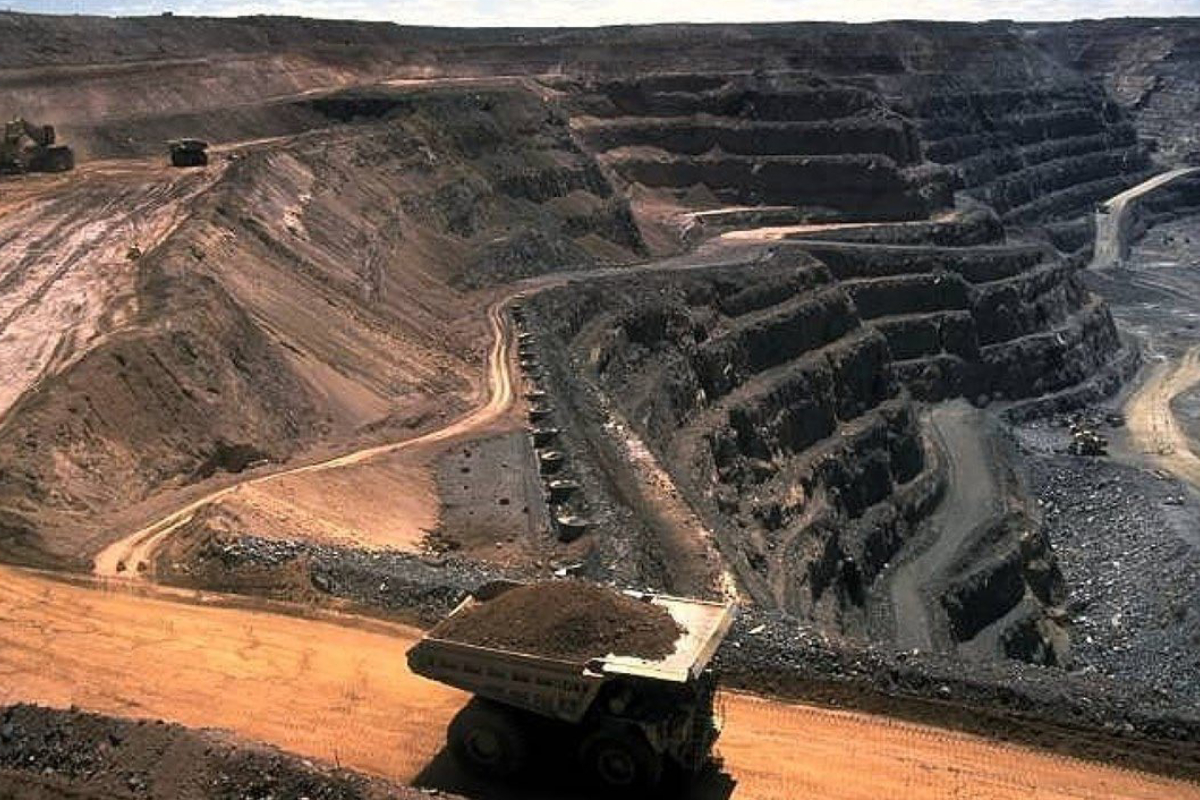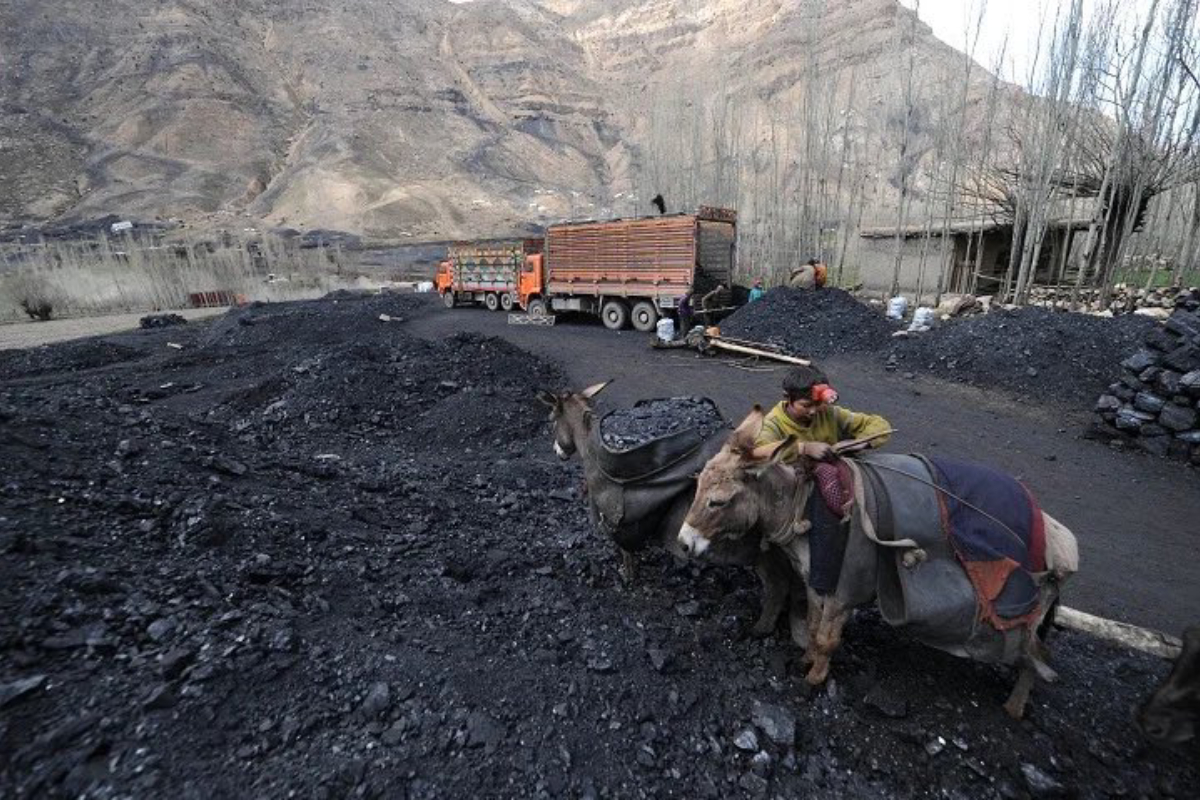
Arrest of Chinese smugglers by the Taliban, for trying to smuggle lithium rocks out of Afghanistan, gives an indication of Chinese design on the battered land rich in precious minerals

In 2016, an internal memo presented to then-Afghanistan President Ashraf Ghani by his top advisor on mines pointed out that Afghanistan was losing out on millions of dollars in revenue as a result of illegal mining being carried out in the eastern and north-eastern districts of Afghanistan bordering Pakistan.
Provinces like Nangarhar, Badakhshan, Nuristan and Kunar were the centres of smuggling syndicates. Gemstones like lapis lazuli, talc powder, copper, iron and coal along with poppy (heroin), were some of the main items that were extracted illegally, smuggled into Pakistan, and then exported to China and other countries under the Pakistani name.
The Taliban, which controlled the majority of these areas, profited greatly from illegal mining and the smuggling of goods. They would collect large sums as bribes in lieu of providing illegal miners and smugglers’ protection. After the fall of Afghanistan, the Taliban quickly took control of all these mining sites and subsequently uprooted most of the corrupt warlords and middlemen involved in the trade.
After the takeover of Afghanistan, the Taliban made serious attempts to regulate the mining industry. The Taliban has also doubled the export of coal to Pakistan, taking advantage of the energy crises that arose due to the Russia-Ukraine war. They have also hiked the mining taxes and streamlined the border crossings for exports.
Afghan mining expert Jawed Noorani, while talking to Afghan media, was quoted as saying that the Taliban was collecting more than $1 billion a year in taxes on minerals. “Mining is a big area of focus for the Taliban,” said Noorani. “It’s the only source of revenue they have at this point, and they’re selling more, without always knowing what they’re selling.”
Till last year, heavily guarded SUVs carrying Chinese officials and businessmen would make frequent weekly visits to the Afghan Mining and Petroleum Ministry’s headquarters, situated in the south-eastern part of Kabul. Subsequently, around the same time, more than a dozen Chinese firms, including the state-owned China Metallurgical Group Corp., applied for mining concessions for different minerals.
Donning pathani suits, Chinese nationals can be seen roaming in different provinces of Afghanistan, exploring business opportunities within the country. Most of them are primarily interested in mining and trading precious rocks and stones. Chinese entrepreneurs have launched YouTube channels to showcase the potential business opportunities in Afghanistan.
From setting up high-end guest houses for visiting Chinese businessmen to setting up media channels to counter western news in Afghanistan, the Chinese are digging deep into Afghanistan with the aim of setting up mining firms.
On the Chinese radar, among other high-value deposits, is the mining of lithium. Chinese official media reported last year that more than 20 state-owned and private firms had put in inquiries about its extraction. Most of the firms had to pull out after taking field trips because of the insurmountable challenges they experienced firsthand due to the unforgiving terrain, poor security, and other infrastructure and logistical issues. There has also been a fallout between the Chinese firms and their Taliban hosts.
As the world’s largest importer of raw lithium, China is always exploring ways to strengthen its supply chain. China dominates global lithium-iron battery production, as it accounts for more than 60 per cent of its production.

To keep its supply chain of electric vehicles, computers and phones unhindered, China is aggressively trying to acquire the mines in Afghanistan. Despite Chinese nationals coming under attack by suspected ISIS insurgents in Kabul, the Chinese embassy in Kabul continues to function. Beijing’s focus is on striking mining deals with the Taliban.
Though the Afghan ministry of mining has stated that “For now, lithium is off limits”, reliable sources in Afghanistan said that small quantities of lithium continue to be exported along with coal and iron.
But what has been worrying for the Taliban is the increase in the trend of smuggling lithium rocks, carried out by the Chinese. Chinese smuggling syndicates in Afghanistan previously had largely restricted themselves to the illegal extraction and smuggling of precious gemstones, talc powder and poppy (to extract heroin), but lately, they have been actively trying to smuggle lithium-bearing rocks out of Afghanistan into China via Pakistan.
On January 22, 2023, Taliban authorities in Afghanistan arrested five men, including two Chinese nationals, for allegedly trying to smuggle an estimated 1,000 metric tons of lithium-bearing rocks out of the country. The arrests and seizure of the rocks were made in the eastern Afghan border city of Jalalabad.
“The Chinese nationals and their Afghan collaborators were planning to illegally transport the precious stones to China via Pakistan,” said Dr Bashir, the head of operational affairs for the Taliban Intelligence Directorate, at a press conference in Nangarhar.
He said that 250 tons of these precious stones were discovered and confiscated in Nangarhar and the rest in Kunar.
Dr Bashir further stated: “We found out that there is a plan to smuggle these precious stones, which are not contracted and are mined secretly. Therefore, in order to arrest the main perpetrators, we gave them a chance to reach Jalalabad city. Five people were arrested, two foreign smugglers who are Chinese and three Afghans who were their collaborators and did most of the buying.”
Mohammad Rasool Aqab, a senior official at the Afghan Ministry of Mines and Petroleum estimated the rocks “contained up to 30 per cent of lithium”. They were “secretly” extracted from Nuristan and Kunar, two of the several Afghan provinces along the border with Pakistan, he added.
The Chinese embassy in Kabul has not yet said anything about the arrest of two of its citizens on charges of smuggling.
Afghanistan reportedly sits on an estimated $1 trillion worth of rare earth minerals, including huge deposits of lithium. The Islamist rulers have banned the extraction and sale of lithium since reclaiming power in Afghanistan in August 2021 after the withdrawal of US troops from Afghanistan.
Following the Taliban’s takeover of power in Afghanistan, the United States and Western nations imposed economic sanctions.
The Taliban government has not been formally recognised by the world over human rights concerns, including the Taliban’s decision to severely restrict women from working and education.
The Taliban’s pariah status has barred Afghanistan from the global banking system. Thus, all the money is laundered back into Afghanistan as cash after being routed through Iran, Germany, Dubai and Pakistan. This has made Afghanistan susceptible to large-scale mineral laundering and international smuggling cartels, especially the Chinese, who are there to exploit it to the maximum.
The Chinese are determined to strike lucrative mining deals with the Taliban, but other regional players like Russia and Iran are showing equal interest in Afghanistan and the Taliban is willing to play a balancing game.
Last year in September, the Taliban trade minister announced a preliminary deal with Moscow for the purchase of discounted Russian gasoline, diesel, natural gas and wheat; and offered access to Afghanistan’s mineral resources as a possible payment in kind.
The Russians obliged and collected rock samples for mineral testing from the province of Logar. Iranian officials also stated that Iranian firms would be mining for zinc and lead in the Ghor province of Afghanistan.
For now, the Taliban is officially stating that lithium mining is off limits but is actively seeking deals on the mining of coal, chromite, nephrite, gemstones, marble, zinc, iron and lead.
Sources privy to the developments, however, indicated that the Taliban is willing to make deals on lithium mining as well, provided they are granted the status of international recognition for their regime in exchange for mining licenses, a deal, according to sources, that both Russia and China are actively considering.